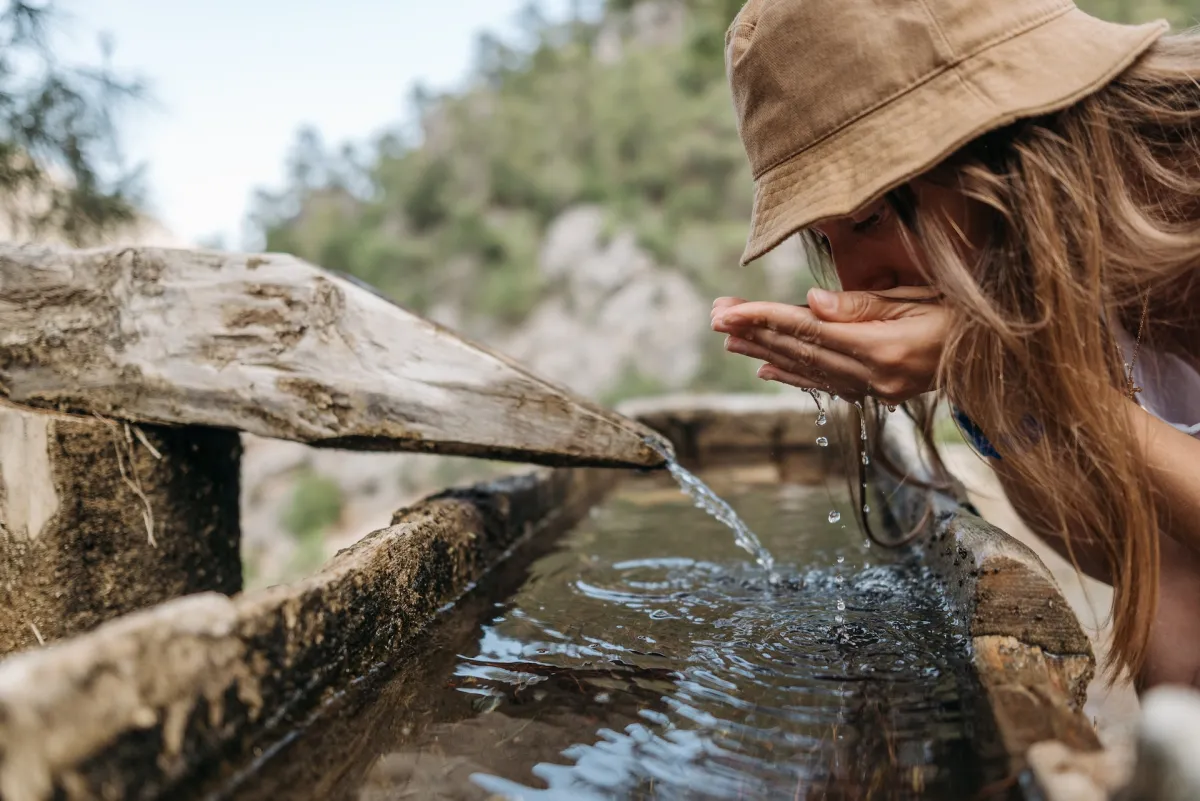Murky Waters: Drinking Water Challenges in Regional and Remote Australia

This World Water Day, we shine a light on researchers at the Australian National University (ANU) who are spearheading critical work to improve drinking water quality in regional and remote Australia.
Leading scholars from the Institute for Water Futures (IWF) are investigating the challenges Australia faces in meeting Sustainable Development Goal (SDG) Target 6.1 - access for all to safe drinking water, and what needs to be done to reach this pledge.
IWF research fellow Dr Paul Wyrwoll says that Australians would be mistaken in thinking that our population has universal access to good-quality drinking water.
Lead author of a 2022 peer-reviewed paper published in Nature Partner Journal Clean Water, Dr Wyrwoll and his colleagues found that Australians in more than 400 remote or regional communities lack access to good-quality drinking water.
“The majority of Australia’s population lives in capital cities where they might assume that all Australians have universal and equitable access to safe and affordable drinking water. But they would be very wrong.”
At least 25,245 people across 99 locations with populations of fewer than 1,000 people have accessed water services that did not comply with health-based guideline values at least once in 2018-19. This number rises to at least 627,736 when considering Australian Drinking Water Guidelines (ADWG) aesthetic determinants of good water quality including safety, taste, and physical characteristics.
The study also found that about eight per cent of Australia’s population is not included in reporting.
“Australia's national water quality statistics do not include service providers with less than 10,000 connections,” said Dr Wyrwoll.
“This means approximately two million people, or about eight per cent of Australia’s population, are not included in reporting on the ‘clean water for all’ goal of the United Nations Sustainable Development Goals (SDGs). The 2022 SDG progress report states that 100 per cent of Australians have universal and equitable access to safe and affordable drinking water.”
Dr Wyrwoll calls for the creation of a national drinking water database, and to address the numerous gaps in reporting.
A research fellow with the Water Justice Hub and IWF and a contributing author of the paper, Dr Kat Taylor says that there are people who have fallen through the cracks due to reporting gaps, a fact that could have serious implications for their health and well-being.
“In 2023, there are people in this country who are drinking water that is of completely unknown quality.
These are small regional and remote communities, many of which have predominately Indigenous populations, that live without adequate and regular testing, treatment and technical support needed to ensure safe drinking water,” said Dr Taylor.
While poor water quality directly affects regional and remote Australia, a study underway by Water Justice Hub and IWF research fellow Dr Ana Manero found that there is widespread support from around Australia for programs to improve drinking water quality in these small communities.
The team surveyed 3,500 Australians to gauge their willingness-to-pay, through a household tax increase, for a program that ensures water quality meets all Australian Drinking Water Guidelines, for up to 260,000 people in 395 small towns and communities with less than 10,000 inhabitants.
“We have found that many people across Australia, even people who live in big cities with consistently good quality water want to support programs to improve water quality in these small communities through their taxes.
The benefits are not restricted to the people directly affected. There are altruistic benefits that would be shared by most people across Australia.”
She argues that water quality in regional and remote communities is ‘everyone’s business’ and she calls upon policymakers to listen to the voice of the public and weigh their welfare and well-being above the cost of such programs.
“Investing in these programs is not only investing in the welfare of people directly affected but also contributing to the sense and well-being of the whole nation.
The world is full of problems and of course, it’s a difficult task for the Government to decide what to prioritise. Ultimately, this isn’t a small problem, it’s everyone’s problem and people across Australia would support the Government’s efforts in addressing it.
Good quality drinking water is a human right and a Sustainable Development Goal. Australian people want this problem fixed.”
